375nm to 940nm Multimode wavelength LED are designed for microscopy and other applications that require multiple color channels.The LED current of each channel can be adjusted independently or modulated via an external voltage.The multi-wavelength LED system offer a compact housing with a backlit, easy-to-read LCD display. They are operated via the buttons on the front panel.
Nominal Wavelength (nm)
UV
Note:
1. The above testing data are only for reference, the actual spectrum of LED may change since the temperature or other parameters are different when operating the current.
2.The above data was tested by 600μm core diameter, 0.22 NA multimode fibers. Other core diameter fibers are available on request.
64 (L) ×46.5 (W) ×30 (H) mm3
114 (L) ×78 (W) ×71 (H) mm3
Fiber Coupled Led,Fiber Coupled Blue Led,Fiber Coupled Led 1550,Single Mode Fiber Coupled Led Changchun New Industries Optoelectronics Technology Co., Ltd. , https://www.cnioptics.com
Features
â– UV, Visible, and NIR Versions (from 375nm to 1550nm)
â– The SMA connector is ideal for multimode fiber.
â– Multi-wavelength fiber coupled LED available.
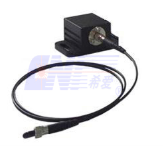
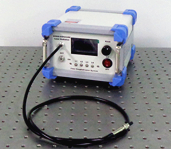
Data Sheet for Single Wavelength LED
Model
Color
Bandwidth FWHM (nm)
Typical Φ600um Core Fiber Output Power SMA (mW)
Maximum Current CW (mA)
Forward Voltage (V)
Typical Lifetime (h)
LFM375
375
9
3.0
1400
3.6
~10000
LFM395
UV
395
16
1.0
500
4.5
~10000
LFM405
UV
405
12
4.2
1400
3.45
~10000
LFM430
Violet
430
15
1.0
500
3.8
~10000
LFM460
Royal Blue
460
25
6.0
1000
3.6
~10000
LFM470
Blue
470
25
3.2
1000
3.2
~10000
LFM500
Cyan
500
30
2.2
1000
3.3
~10000
LFM530
Green
530
33
3.0
1000
3.2
~10000
LFM565
Lime
565
104
3.0
1000
3.1
~10000
LFM600
Amber
600
15
1.2
1000
2.6
~10000
LFM620
Red
620
18
5.5
1000
2.2
~10000
LFM625
Red
625
17
3.0
1000
2.2
~10000
LFM660
Deep Red
660
20
4.0
1200
2.6
~10000
LFM730
Far Red
730
37
1.5
1000
2.3
~10000
LFM808
IR
808
25
2.5
500
3.6
~10000
LFM850
IR
850
30
3.0
1500
3.85
~10000
LFM880
IR
880
50
1.0
1000
1.7
~10000
LFM940
IR
940
37
3.0
1000
2.75
~10000
LFM1050
IR
1050
37
2.0
600
1.4
~10000
LFM1550
IR
1550
102
1.0
700
1.1
~10000
Laser Head
Power Supply
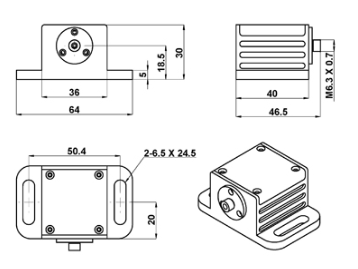
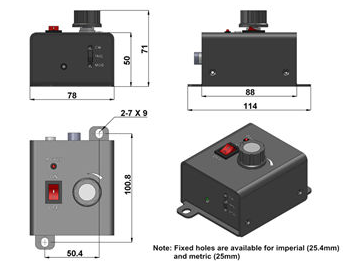
Data Sheet for Multi-wavelength LED
Parameters
Indicators
Available wavelength (nm)
375-940
Output mode
Fiber output
Fiber core diameter (μm)
400, 600, 800, 1000
Fiber connector
SMA905
Output power (mW)
Related to fiber
Power stability (rms, over 4 hours)
<3%, <5%
Operating mode
CW, TTL or Analog on request
Operating temperature (°C)
10~35
Dimensions
192(L)*241(w)*139.9(H)mm3
Input power
12VDC 7A
Cooling method
By air
Storage temperature (°C)
-20~80
Lifetime (hours)
10000
Fiber Specs
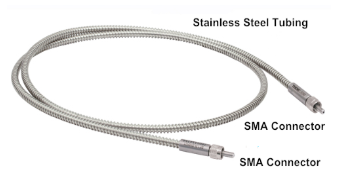
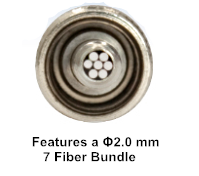
What to do if your Clutch Cable goes out
The clutch cable in manual transmission vehicles connects the clutch pedal to the transmission system, playing a crucial role in enabling smooth gear shifts. When operated correctly, it allows drivers to engage or disengage the clutch at the appropriate moments. However, this essential component is also one of the most frequently problematic parts of a manual car, especially if not maintained properly or adjusted correctly. Using non-OEM parts or neglecting regular checks can cause the cable to wear out over time, potentially leading to breakage under extreme conditions. In such scenarios, the vehicle becomes impossible to shift gears effectively, often stalling unexpectedly.
While it might sound alarming, encountering a broken clutch cable doesn’t necessarily mean immediate danger. If the cable snaps while the car is in gear, you can still manage to drive cautiously until reaching a safer location like home or a mechanic’s shop. Maintaining higher RPM levels can help keep the engine running as you steer the car into a secure spot. This maneuver requires focus and confidence behind the wheel, so only attempt it if you're comfortable with the process. Prioritizing safety remains paramount, regardless of whether you decide to push forward or pull over.
Conversely, if the issue arises during gear changes or when the car is in neutral, moving the vehicle becomes significantly more challenging. Slowing down gradually and finding a nearby parking area or side road is advisable. Avoid stopping abruptly in traffic, as this could pose risks to both yourself and others on the road. Always remember to turn on your hazard lights to alert surrounding drivers of your situation.
In moments of unexpected vehicle trouble—regardless of the brand or type of parts involved—it’s critical to remain composed. Assess the circumstances methodically, prioritize safety, and take decisive actions based on the conditions around you. Staying calm and rational ensures better outcomes in these situations.
If you’re looking for additional tips or insights, consider exploring related topics such as how aftermarket parts might affect your Toyota vehicle or how to safeguard young drivers. These discussions offer valuable perspectives that could enhance your understanding of automotive maintenance and safety practices.
[Image: Toyota OEM Clutch Cable] [Image: Close-up View of Clutch Cable Assembly]
For further reading, check out posts discussing innovative Toyota models, strategies for monitoring teenage drivers, or even clever modifications for popular Toyota vehicles like the Sienna. Each article provides unique insights tailored to different aspects of modern motoring life.